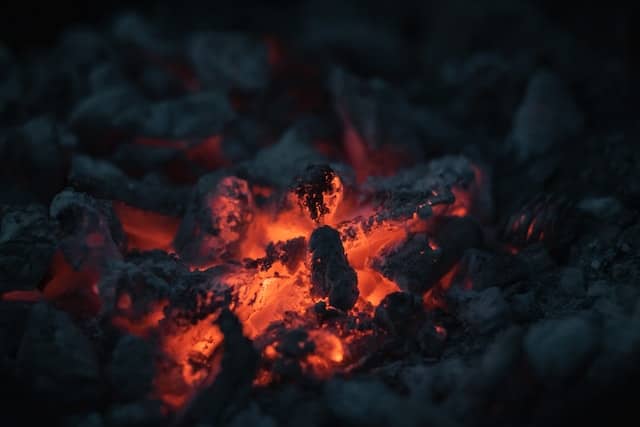Why is Ralph so angry that the fire went out? Lord of the Flies is a classic novel that explores the dark side of human nature through the experiences of a group of boys stranded on an uninhabited island. When the fire, a symbol of the boys’ connection to civilization, goes out, the boys’ first chance of being rescued is thwarted. This event sends Ralph, the protagonist, into a rage, indicating that he is still governed by the desire to achieve the good of the whole group. But why is Ralph so angry that the fire went out? This article will explore the reasons behind Ralph’s intense emotions and shed light on the significance of the fire in the novel.
Why is Ralph so angry that the fire went out? (Answer)
In William Golding’s classic novel, Lord of the Flies, the fire symbolizes the boys’ connection to civilization. It represents their hope of being rescued and returning to the safety and order of their previous lives. When the fire goes out in Chapter 4, the boys’ first chance of being rescued is thwarted, and Ralph, the novel’s protagonist, flies into a rage.
Ralph’s anger is not simply a result of the fire going out; it is a manifestation of his desire to achieve the good of the whole group. Throughout the novel, Ralph’s leadership is characterized by his commitment to the common good. He recognizes that their survival depends on their ability to work together and follow rules that ensure everyone’s safety and well-being.
The fire is not just a source of warmth and light; it symbolizes their collective effort to be rescued. It represents their hope of being rescued and returning to the safety of civilization. When the fire goes out, Ralph recognizes that their hope of being rescued has been extinguished, and this realization fuels his anger.
Ralph’s anger is not simply a personal emotion but a reflection of his commitment to the group. He knows their survival depends on their ability to remain connected to civilization and work together to achieve their goals. When the fire goes out, he sees this as a failure of the group to maintain their connection to civilization. He is angry because he knows that their survival is at stake.
Why does the fire go out in the Lord of the Flies?
The fire goes out in Lord of the Flies because Jack and his group of hunters prioritize hunting and killing a pig over maintaining the fire. Throughout the novel, the fire symbolizes hope for rescue and civilization. Initially, the fire is set up on top of the mountain to signal passing ships or planes. However, when Jack becomes obsessed with hunting, he convinces his followers that killing a pig is more important than keeping the fire going. As a result, they neglect their duty to tend to the fire, allowing it to burn out and diminish their chances of being rescued. This event reflects the growing descent into savagery and loss of civilization among the boys on the island.
Why does Jack say that the hunters are excused from building shelters?
Jack says that the hunters are excused from building shelters because he believes their primary responsibility is to provide food for the group. He argues that their role as hunters is crucial for survival, as they must kill pigs to sustain themselves. In Jack’s view, obtaining meat takes precedence over constructing shelters because he believes having enough food is more important for their immediate well-being and survival than having a secure place to sleep.
This decision reflects Jack’s prioritization of immediate physical needs over long-term security and comfort. He sees hunting as a fundamental task necessary for the group’s survival, and he believes that his role as leader of the hunters exempts them from other responsibilities like building shelters. This mindset highlights Jack’s instinctual and impulsive nature, leading him and his followers down a darker path as they become increasingly focused on satisfying their primal desires rather than maintaining civilized order.
What are Ralph’s feelings on meetings?
Ralph initially views meetings as a crucial tool for maintaining order and organization on the island. However, Ralph’s perception of meetings changes as time progresses, and the boys become increasingly unruly and disobedient. He begins to feel frustrated and disheartened by the lack of follow-through from the other boys. Ralph believes the meetings are becoming ineffective and a waste of time since no one is taking responsibility or fulfilling their commitments. This growing sense of disillusionment leads Ralph to question the usefulness of continuing with regular gatherings.
Conclusion
In conclusion, Ralph’s anger when the fire goes out in Lord of the Flies is not simply a personal emotion but a reflection of his commitment to the common good. The fire symbolizes their connection to civilization, and their hope of being rescued is extinguished when it goes out. Ralph’s anger manifests his desire to achieve the good of the whole group and his recognition that their survival depends on their ability to work together and remain connected to civilization.
